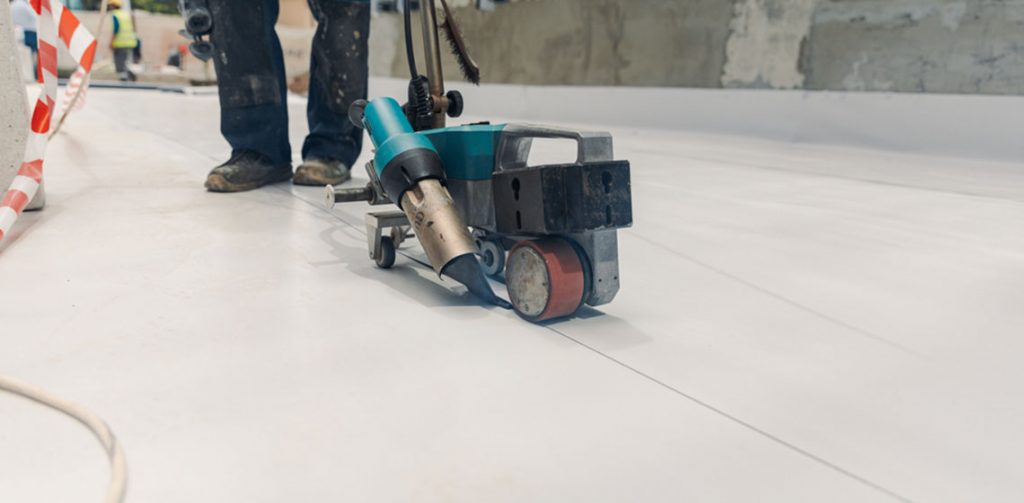
Commercial buildings are vulnerable to the adverse effects of extreme weather conditions, including heavy rain, high winds, snowstorms, and scorching heat. To protect your commercial property and its occupants, it is crucial to weatherproof the roof. By taking proactive measures and utilizing appropriate commercial roofing products and materials, you can enhance the durability, energy efficiency, and resilience of your roof. In this article, we will explore effective strategies and practices to weatherproof the roof of your commercial building for extreme weather conditions.
Conduct a Roof Inspection
Before embarking on weather-proofing measures, begin with a thorough roof inspection. Engage a professional roofing contractor to assess the roof’s condition, identifying any existing issues, weak spots, or potential vulnerabilities. The inspection should include checking for leaks, damaged flashing, loose or missing shingles, and signs of wear and tear. This assessment serves as the foundation for determining the necessary weather-proofing actions and selecting appropriate commercial roofing products and materials.
Choose High-Quality Commercial Roofing Products and Materials
Selecting the right commercial roofing products and materials is essential for weather-proofing your roof. Opt for high-quality materials that offer durability, resistance to extreme weather conditions, and energy efficiency. Consider options such as metal roofing, which provides excellent strength and longevity, or synthetic roofing materials that mimic the look of traditional materials while offering enhanced durability and weather resistance. Ensure that the chosen materials are specifically designed and tested to withstand the specific weather challenges prevalent in your region.
Reinforce Roof Structure and Connections
To enhance the resilience of your commercial roof, reinforce the roof structure and connections. Ensure that the roof decking and framing are in good condition and can withstand high winds or heavy snow loads. Strengthen connections between roof components, such as the decking, trusses, and supports, using appropriate fasteners or connectors. Reinforcing the roof structure minimizes the risk of structural damage during extreme weather events, enhancing the overall safety and longevity of the roof.
Improve Insulation and Ventilation
Proper insulation and ventilation play a crucial role in weather-proofing the roof of your commercial building. Adequate insulation helps regulate indoor temperatures, preventing heat loss during cold weather and minimizing heat gain during hot weather. This reduces the strain on heating and cooling systems, improving energy efficiency and reducing utility costs. Additionally, effective ventilation prevents moisture buildup, which can lead to mold growth and compromise the integrity of the roof. Consider utilizing insulation materials with high R-values and implementing proper ventilation systems to create a well-balanced and energy-efficient roofing system.
Enhance Flashing and Sealant Protection
Flashing and sealants are critical components in weather-proofing the roof. Inspect and repair or replace damaged or deteriorated flashing around vents, chimneys, skylights, and other roof penetrations. Utilize high-quality, weather-resistant sealants to seal gaps, cracks, or joints in the roof system, ensuring a watertight seal. Properly installed and maintained flashing and sealants prevent water intrusion and protect against leaks during heavy rains or snowstorms.
Clear Debris and Maintain Gutters
Regular maintenance of your commercial roof is essential for weather-proofing. Clear debris, leaves, branches, and other accumulated materials from the roof surface and gutters. Clogged gutters can lead to water pooling on the roof, potentially causing leaks or damage. Regularly inspect and clean gutters, ensuring proper water drainage away from the building’s foundation. Maintaining clear gutters and a debris-free roof reduces the risk of water-related issues during extreme weather events.
Plan for Emergency Repairs and Disaster Preparedness
Despite proactive weather-proofing measures, unforeseen events can still occur. Plan for emergency repairs and disaster preparedness to minimize potential damage and ensure the safety of your commercial building and its occupants. Develop a contingency plan and establish relationships with reliable roofing contractors who can respond promptly during emergencies. Regularly review and update the plan to account for changing weather patterns or building requirements.
Regular Roof Maintenance and Inspections
To ensure the continued weather-proofing of your commercial building’s roof, it is crucial to establish a regular maintenance and inspection schedule. Engage a professional roofing contractor to conduct routine inspections and address any potential issues promptly. Regular maintenance activities may include cleaning debris, checking for signs of damage or deterioration, inspecting seals and flashing, and ensuring proper drainage.
Weatherproofing the roof of your commercial building is vital for protecting your property, ensuring the safety of occupants, and maintaining the longevity of your roof. By conducting a thorough roof inspection, selecting high-quality commercial roofing products and materials, reinforcing the roof structure, improving insulation and ventilation, enhancing flashing and sealant protection, clearing debris, and planning for emergency repairs, you can effectively weatherproof your commercial roof for extreme weather conditions. Invest in the durability, energy efficiency, and resilience of your commercial roof to withstand the challenges of nature and secure the longevity of your building.

